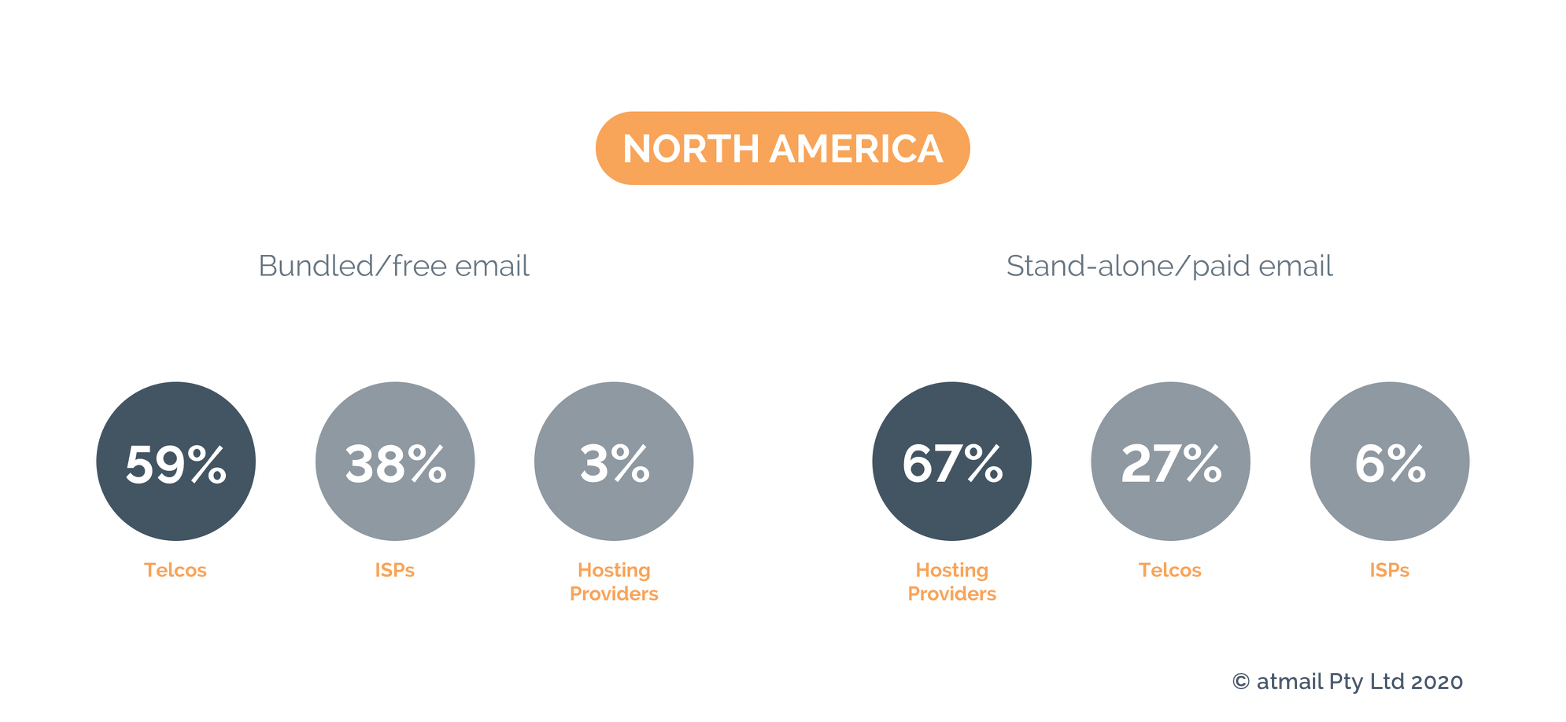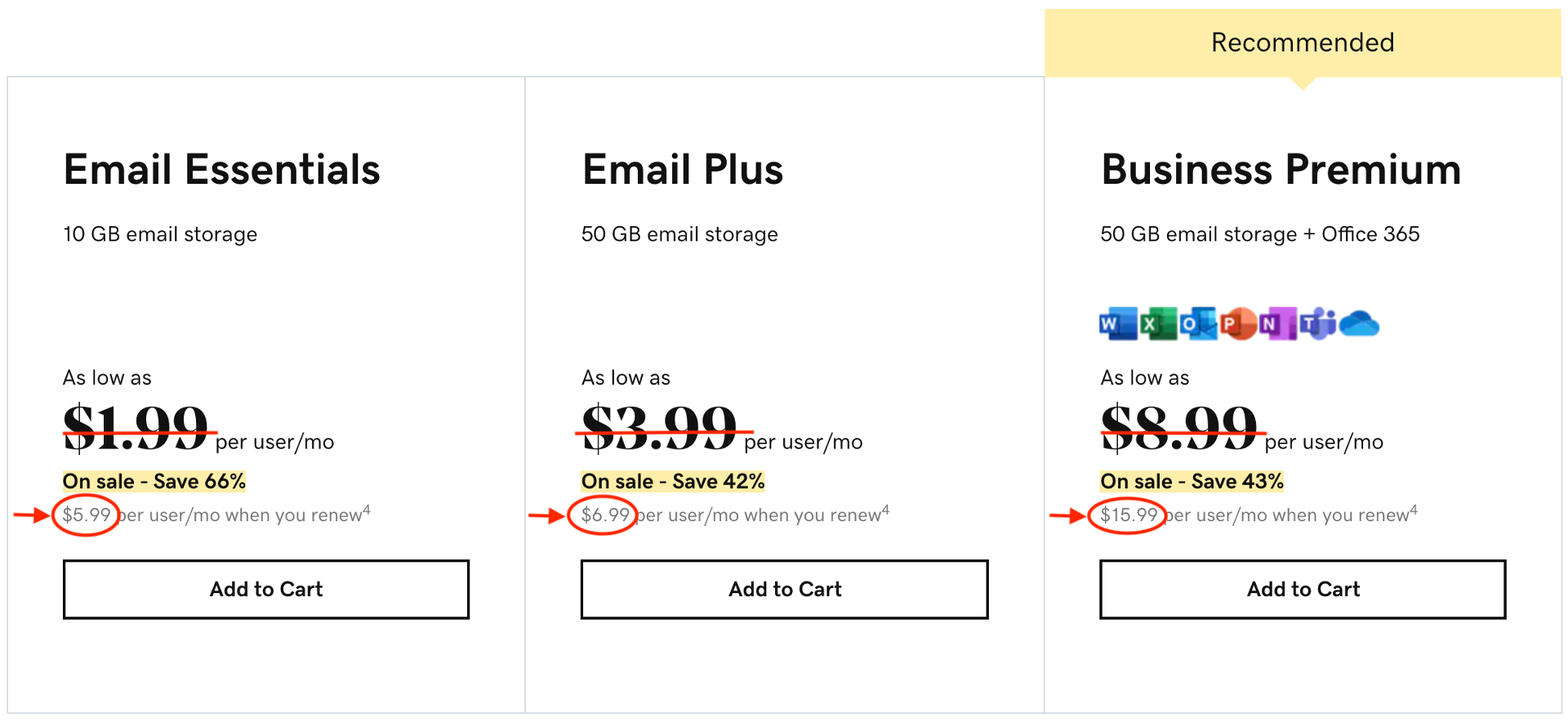
Email Pricing: 3 Tips Telcos Can Learn from Hosting Providers
When it comes to building and managing the infrastructure to support internet and telephony, telcos rule supreme. But when it comes to understanding the value of the services that they provide, telcos can learn a lot from hosting providers – particularly when it comes to consumer email pricing.
For years, telcos have fallen into the trap of not adequately valuing or pricing their email service. They have regularly given it to consumers for free (usually as part of an internet/phone bundle), and subsequently fostered the notion that email was, in essence, not individually worthy.
Savvy hosting providers have taken the opposite view. They know that consumers value email and will pay for it – all you have to do is ask.
3 tips telcos can learn from hosting providers
1. Consumers will pay for email
In our recent 350+ hour research study of email offerings from telcos, ISPs and hosting providers worldwide, we found that most telcos either:
(a) didn’t charge for consumer email (preferring instead to give it away for free in a product bundle); or
(b) didn’t have the confidence to charge the true value of their email offering.
In North America, telcos made up 59 percent of the companies that gave email away for free. In Europe, the figure was even higher, at 69 percent.
Yet, hosting providers in those same two regions had no qualms about charging for their email services.
In North America, hosting providers made up 67 percent of the companies that charged a separate fee for email. In Europe, the figure was 75 percent.
The data that we found confirmed that:
(a) hosting providers understand the true value of their email offering; and
(b) consumers will pay for email. They might not pay US$30/month for Superhuman email, but they will pay for normal, human email.


2. Consumers will pay a premium for email
This screenshot shows an example of a large, global, hosting provider that knows how to play the email pricing game. They know how to:
- Offer promotional pricing to get people in the door;
- Charge higher prices, once customers are signed up and sticky; and
- Provide different price points for the different email segments (consumer, SMB and enterprise).

Contrary to how telcos have been schooled to believe that consumers won’t pay much for email, the first option in the above example starts at US$5.99/month (excluding introductory pricing), the second at US$6.99, and the third at US$15.99.
Each of these options completely disprove the argument that people don’t value and won’t pay for email.
3. Consumers will pay for email upsells
Our research found that not only will consumers pay true value for email, but they will also pay for email upsells if they perceive them to be of value.
The image below shows one example of email upsell pricing options from a large, well-known, hosting provider – and yes, they are charging US$3.49 per month for mobile access (and they would only do this if consumers were paying it).

Upsell pricing examples from other hosting providers that we found included:
- Set-up fee
- US$3.50 – $17.50
- Priority support
- US$2.30/month
- Email backup
- US$2.30 – $2.99/month
- Antispam
- US$1.00/month
- Advanced email security
- US$3.50 – $4.99/month
- Email archiving
- US$2.99 – $4.99/month
- Email encryption
- US$4.99/month
Are telcos still sure that consumers won’t pay for email (and email upsells)?
How can telcos improve their email pricing model?
Despite undervaluing their email services, telcos are clever and should know how to improve their email pricing – once they recognise the potential to do so.
First steps might include:
- Researching local markets to better understand what consumers are paying to hosting providers for equivalent offerings;
- Checking what subscription and upsell features are possible with their current email product;
- Talking to their email services vendor, to find out what email upsell features they can turn on/off (e.g. via Class of Service / admin panels), as well as what new email features might be on their vendor’s roadmap (for potential upsell to a telco’s customers base in the future); and
- Test the waters; talk to user groups to bounce ideas and gain valuable input; try introducing email subscriptions; try raising prices (note that if you are not currently offering a great customer email experience, your email system might need an upgrade first); and try offering email feature upsells. Learn-rinse-repeat.
The overarching lesson that telcos can learn from hosting providers is that their email platform should be a profit centre, not a cost centre.
If it’s not, it’s time to start those conversations and trials. Today.
Update: January 2021:
Since writing the original version of this post, we did even more research into the email pricing of telcos, ISPs and hosting providers. We invite you to view our full results, observations and recommendations in our free download, How to Convert Your Email Platform from Loss to Profit.
New to atmail?
atmail is an email solutions company with 22 years of global, white label, email expertise. You can trust us to deliver an email platform that is secure, stable and scalable. We power more than 170 million mailboxes worldwide and offer modern, white-labelled, cloud hosted email with your choice of US or (GDPR compliant) EU data centres. We also offer on-premises webmail and/or mail server options. To find out more, we invite you to enquire here.


